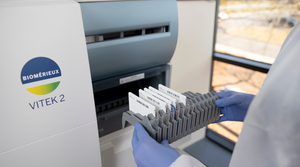Kaiser Permanente Drives Connectivity and Interoperability
September 1, 2007
BUSINESS NEWS
In the past, medical device manufacturers may not have paid much attention to the surging importance of healthcare information technologies (IT) or to the growing trend toward greater connectivity and interoperability among medical technology products. But language now being included in vendor contracts by Kaiser Permanente (Oakland, CA), may make it a lot more difficult for medtech companies to ignore those trends.
Kaiser Permanente is an integrated managed care organization that operates 37 hospitals in nine states. In the past year, the organization has introduced into many of its contracts with medtech manufacturers language that, in effect, holds the manufacturer responsible for ensuring the interoperability of its devices with the hospital's clinical information system.
One of the primary objectives of Kaiser's medical device plug-and-play contract language is to ensure device interoperability with the organization's electronic medical record (EMR) system. The contract language also stipulates that the supplier must demonstrate successful device interoperability through testing at a Kaiser-designated facility or an approved independent lab. If the medical device fails to communicate adequately on the network, the hospital can request to have it removed at the manufacturer's expense.
|
Gee |
Tim Gee, principal of Medical Connectivity Consulting (Beaverton, OR), describes the potential impact of Kaiser's move as "huge." Gee expects other hospitals to follow suit and says that a large, prestigious medical center in the northeastern United States is expected to announce a similar program shortly. "This is radical stuff that places the systems integration role firmly on the shoulders of the medical device vendor," says Gee.
Device manufacturers have traditionally not been active participants in standards development for medical IT initiatives or at forums on clinical connectivity and device interoperability. Over the past year, medical device companies have seemed to be paying more attention to activities in this field. Nevertheless, says Gee, "While there may be more names on association rosters, if truth be known, the number of active medical device manufacturers in this arena is less than 10."
More hospitals are expected to follow Kaiser Permanente's lead in placing the responsibility for device interoperability directly on medtech vendors.
About the Author(s)
You May Also Like



